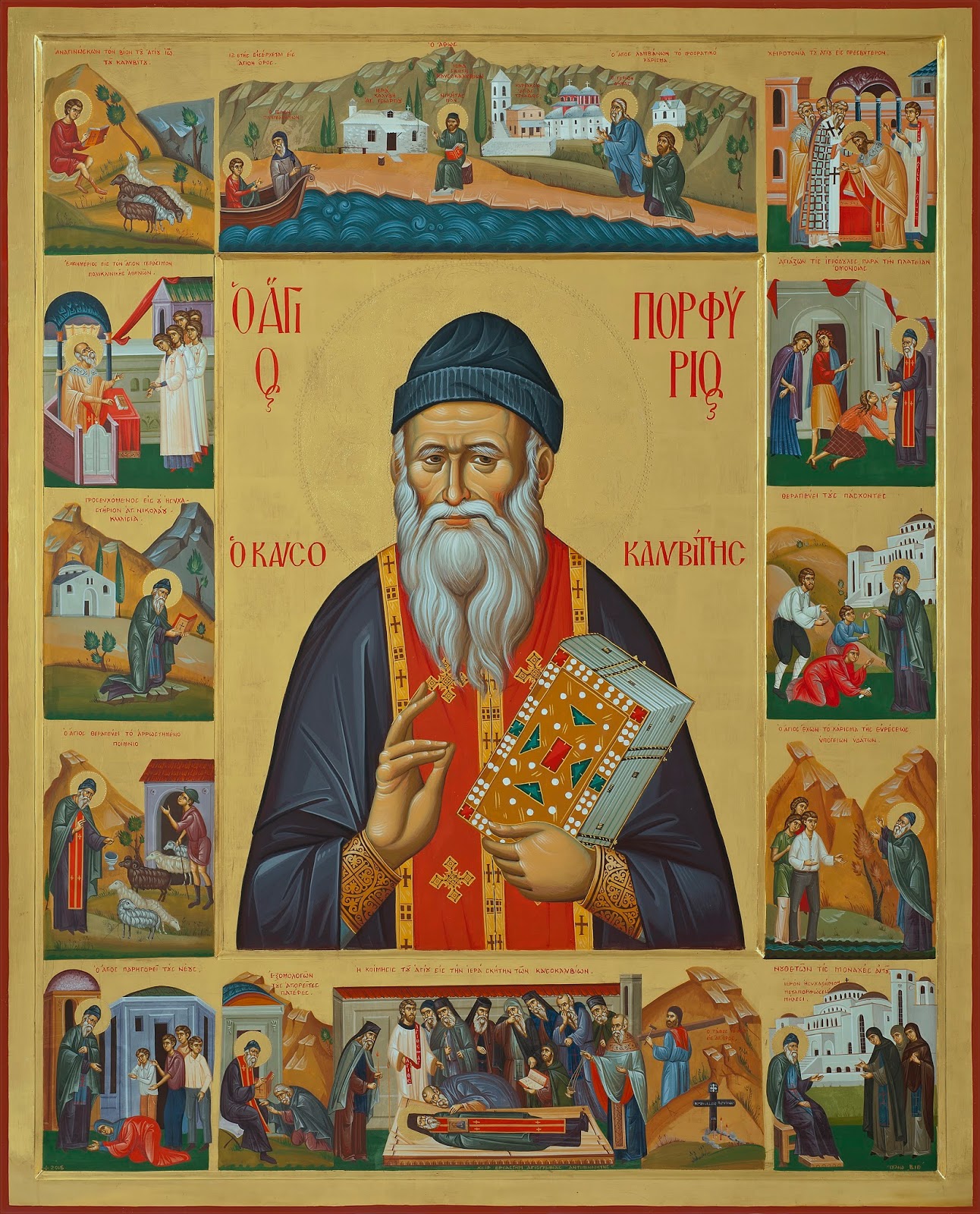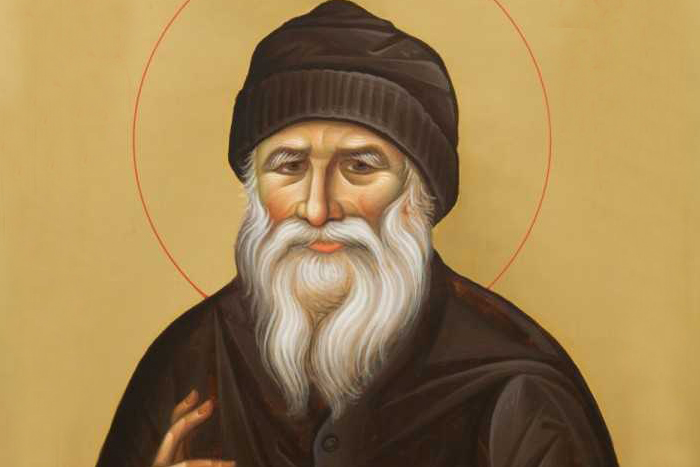Saint Porphyrios (Bairaktaris) was born in 1907 with the name Evangelos in Evoia, Greece, in the small village of Agios Ioannis (Saint John). As a child, he tended to the sheep in the hills, and it is there that he first read the life of Saint John the Hut-Dweller (Commemorated January 15th), which planted the desire for monasticism in his heart. The spark lit by Saint John was fanned when, at the age of seven, he overheard a conversation about the divine beauty of the Holy Mountain. Eventually, he stowed away on a boat to Thessalonica, hoping to reach Mount Athos.
On the evening after his arrival, a group of monks gathered at the harbor to take the boat to Mount Athos. One of them noticed the young Porphyrios and asked him where he was going. Porphyrios told the monk that he was going to the Holy Mountain but lied about the reason. The monk, seeing through this, told Porphyrios to say he was his nephew and that his mother had passed away, so he could be allowed on the mountain since he was still a child.
The monk, named Panteleimon, became his spiritual father and brought him to Kavsokalyvia, a small skete where Panteleimon lived with his brother, the Priest Ioannikos, as fellow monastics. The young Porphyrios loved to carry out the virtue of obedience to his elders, sometimes being tested by them without even knowing it. At the age of fourteen, his elder asked Porphyrios what he planned to do with his life. The young man expressed his desire to stay on the Mountain. Two or three years later, Porphyrios was tonsured with the name Nikitas.
Once, being obedient to one of his elders against the wishes of the other, Porphyrios went out on a rainy day to collect snails. After hours of filling his sack and burdened by the wind and cold, Porphyrios found himself suddenly caught in a rockslide and was buried up to his knees. Crying out to the Theotokos, he was miraculously delivered but developed pleurisy due to the ordeal and had to leave Mount Athos to seek medical treatment. The elder who told him to collect the snails profusely apologized and personally saw Porphyrios off of Mount Athos, kissing him on the forehead in tears.

Porphyrios returned to the village of Agios Ioannis in Evoia, where he reunited with his family. He stayed at the monastery of Saint Haralambos, near the village of Avlonari, until he recovered. His good reputation as a faithful and obedient monk quickly spread, catching the attention of Bishop Fostinis of Kymi. The bishop began to visit Porphyrios frequently and, with the aid of Archbishop Porphyrios III of Sinai (from whom Porphyrios received his final name), ordained the young monk as a deacon and then as a priest. Two years later, he was made a confessor and would, at times, hear confessions for multiple days at a time without sleep or food.
His next major ministry was serving as the Chaplain at the Polyclinic Hospital in Athens for roughly 33 years (1940-1973). Through the well-known Professor of Canon Law, Amilkas Alivizatos, Porphyrios was assigned to the Church of Saint Gerasimos, associated with the hospital. During this time, he helped many patients spiritually by acting as their father confessor. In addition to his hospital duties, he helped renew the Church of Saint Nicholas in Kallisia, often praying there alone or with family during the night.
However, Porphyrios had still been unable to fulfill another dream he shared with his family: founding a monastery. After years of searching, he bought some land on top of a hill in Milesi, where he later founded The Holy Monastery of the Transfiguration. He remained there for many years before returning to his old cell on Mount Athos, where he spent his last years. He departed this life on December 2nd, 1991. Porphyrios was declared a saint by the Ecumenical Patriarchate on November 27th, 2013.

